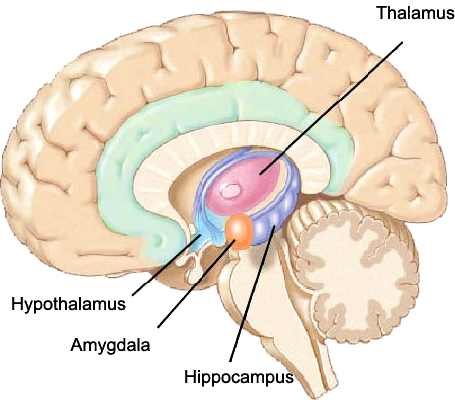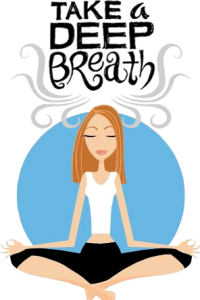Happy Dhanteras
Dhanteras also known as the festival of...

With God’s grace, we are alive. Something that makes us feel alive is our breath. Also, nature’s self-sustaining, positive energies are received by us through the medium of breath. So, breathing is the most vital component of life but it is strange that our mind is so full of things that we often forget to have a mindful breath.
 Recent discoveries by Neurologists have shown that there is a connection between our breathing and cognitive functions, i.e. conscious mental activities (such as thinking, understanding, learning, and remembering). When we are tensed, we often hear people suggesting us to “sit and take deep breath.” Slow and deep breathing oxygenates our body and mind which results in proper supply of oxygen to the mind. This calms down our nervous system and also slows down the heart rate which finally reduces feelings of anxiety and stress. So it is rightly said, “When you own your breath, nobody can steal your peace.”
Recent discoveries by Neurologists have shown that there is a connection between our breathing and cognitive functions, i.e. conscious mental activities (such as thinking, understanding, learning, and remembering). When we are tensed, we often hear people suggesting us to “sit and take deep breath.” Slow and deep breathing oxygenates our body and mind which results in proper supply of oxygen to the mind. This calms down our nervous system and also slows down the heart rate which finally reduces feelings of anxiety and stress. So it is rightly said, “When you own your breath, nobody can steal your peace.”
Scientists have discovered through certain surveys that inhaling stimulates our brain. It was found that brain activity fluctuated with breathing. The part of the brain that responds to our breathing is the Limbic system. It was found that when we breathe, specifically through our nose, then these signals are received directly by our brain.
The Limbic system is a part of the brain that is associated mainly with emotions, memories and stimulations. The smell or fragrance that we feel through our nose has a close link with this system of the brain.
Also, Guru Bhagwan tells us that the rate of breathing directly controls the frequency of our thoughts; i.e. number of thoughts per second gets controlled. That is why, when we are stressed, we are asked to breathe deeply. If the breathing process will be slow, the number of thoughts will be lesser.
Two important parts of the Limbic system in this concern include Amygdala and Hippocampus.

Associated functions of Amygdala are-
Amygdala is divided into two sections; left amygdala and right amygdala. Right amygdala is concerned with negative emotions, especially fear, anxiety and sadness while left amygdala is concerned with pleasant emotions like love, joy and happiness. Both parts of the amygdala have independent memory systems but work together and are extensively fed by the nasal breathing.
This part of the brain is responsible for making new memories. Also, it makes short term memory concrete for long term. It is found that people who practice deep breathing have a better and a strong memory, as their Hippocampus is relatively better activated.
1. It is commonly observed that a particular type of smell reminds us of a happy event that happened once upon a time and to another person the same smell might be irritating. There are different reactions to the same smell. This is because everyone has different emotions and memories connected with the smell. This explains that smell; basically the inhaled air affected some part of the brain and encoded some imprints. This encoding is done on Amygdala.
Guru Bhagwan says, the highest positivity is God’s divine name. To welcome that positivity, it is great to start with trying to chant God’s name while consciously breathing. This is a sort of breath meditation which connects us with God and simultaneously purifies our mind.
 2. Breath and brain work in circular manner. The air enters when we inhale; it takes a turn and comes out when we exhale. The point where the incoming breath becomes outgoing breath, there is a point of vacuum or silence. It has been found that, at this point of vacuum, there is no thought in mind. In Spiritual context, we say that holding on to this vacuum is Meditation. Thus our breathing controls our brain activities to a great extent.
2. Breath and brain work in circular manner. The air enters when we inhale; it takes a turn and comes out when we exhale. The point where the incoming breath becomes outgoing breath, there is a point of vacuum or silence. It has been found that, at this point of vacuum, there is no thought in mind. In Spiritual context, we say that holding on to this vacuum is Meditation. Thus our breathing controls our brain activities to a great extent.
3. It is rightly said that “a battle against anything is a battle against your alignment.” When we are depressed or angry, we find that our breathing rate increases and as soon as we calm down, the breathing rate also slows down. This shows that the activities of brain are directly influenced by our breathing and vice versa.
Guru Bhagwan says, when you inhale, feel as if you are inhaling positivity, happiness, prosperity, and whatever good you wish to have. Also, while exhaling, feel that you are releasing all negativity, anger, jealousy and all other negative traits. This creates similar impulses in the brain. As we are 98% mental and only 2% physical, so altering the mental conditioning through the process of breathing will affect our physical health.
 1. Guru Bhagwan says, when we breathe deeply, our mind becomes thoughtless and is not thinking this or that. So, to relax your mind, it is an instant remedy to sit and start doing deep breathing. This will activate the brain cells and we shall start feeling fresh.
1. Guru Bhagwan says, when we breathe deeply, our mind becomes thoughtless and is not thinking this or that. So, to relax your mind, it is an instant remedy to sit and start doing deep breathing. This will activate the brain cells and we shall start feeling fresh.
2. When you feel stressed, it is just a few minutes breath exercise that will help you relax. Guru Bhagwan says, take deep breath, hold it for few seconds and then release it slowly. Just 10 rounds of this short exercise will calm down your mind.
3. When you feel sleepless, lie down comfortably on the bed, fold your knees and bloat your stomach with air, then slowly exhale the air. Remember exhalation should be done very slowly. Exhalation time should be double than the inhalation time.
Lost in sensory pleasures, we often tend to forget sitting with our own selves; sitting with ourselves refer to certain things that point towards the inner development. The most basic and the major step to start with is to have deep breathing with a positive imagination. This positive imagination and proper breathing will lead our life towards a higher conscience.
Hare Krishna !!
Guru Bhagwan k anant shukrane hain … Bhagwan Ji Maine practice kiya …it was wonderful experience!!!! Bhagwan Ji apko shat -shat naman hai anant shukrane hain